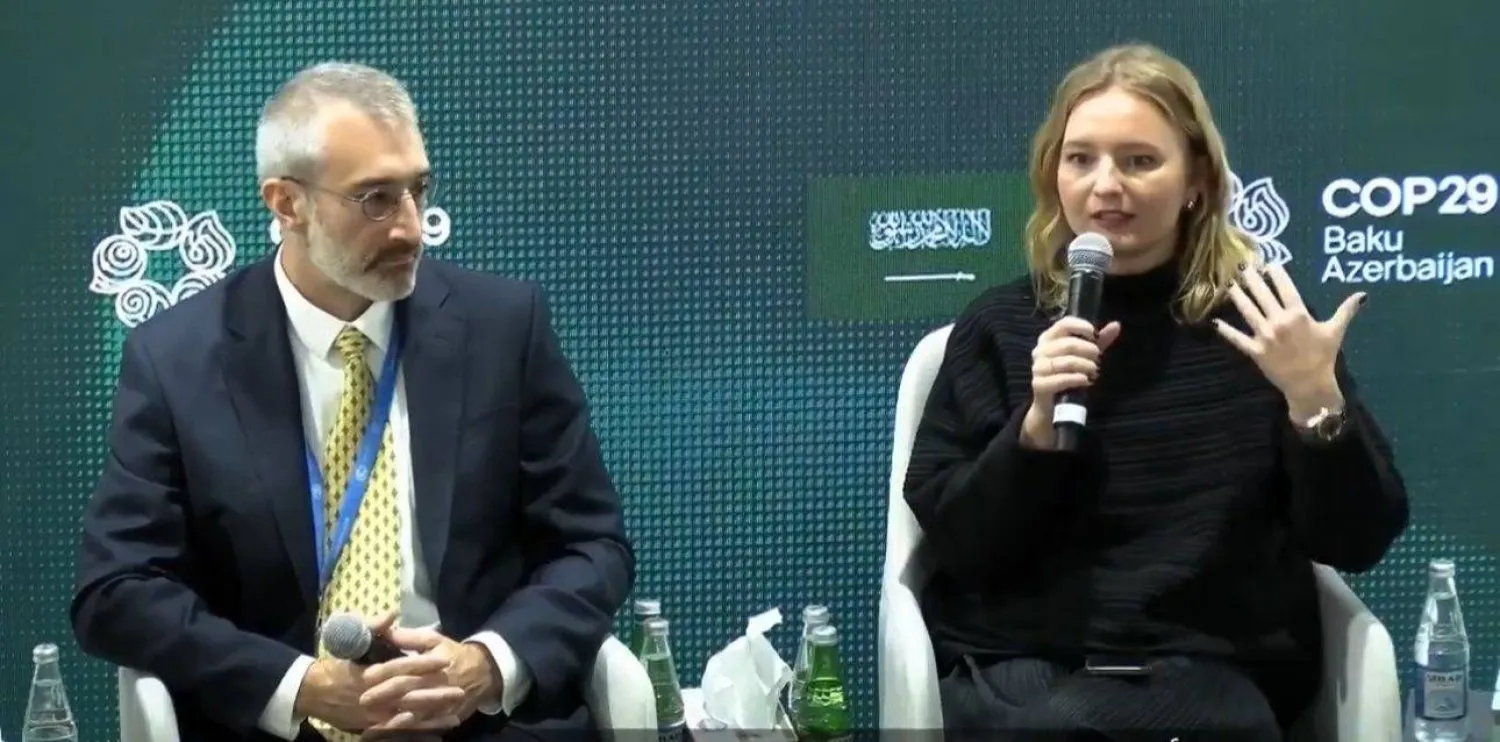During a panel discussion titled, “The Carbon Management Challenge: Scaling Carbon Management to Gigaton Levels” at the Saudi Pavilion at COP 29, speakers highlighted the critical role of international collaboration in advancing carbon capture technologies and emphasized Saudi Arabia’s ambitious goal of achieving net-zero emissions by 2060.
The discussion focused on Saudi Arabia’s adoption of the Circular Carbon Economy framework, which centers on four key pillars: reducing emissions, reusing carbon, recycling, and removing carbon.
The participants pointed to the importance of international cooperation in developing new carbon capture technologies and establishing independent carbon transport and storage projects. According to reports, over 50 advanced carbon capture and storage (CCS) projects are currently in progress globally, with a combined capacity of 50 million tons. Furthermore, investment decisions have been made for 44 additional CCS projects under development around the world.
The session also explored advancements in various industries, such as the cement sector. Countries like Japan, China, and European nations have made significant progress in carbon capture technologies, while emerging economies such as Canada and Thailand are working on financing decarbonization efforts in the cement industry.
The speakers underscored the crucial role of governments in enabling these initiatives by making financial investments and developing the necessary infrastructure. They also pointed out that supportive government policies are essential for driving these projects forward and fostering collaboration between the public and private sectors. This aligns with the Clean Energy Ministerial’s focus on advancing policies for carbon capture, utilization, and storage technologies.
The participants further stressed that global goals to reduce emissions and combat climate change can only be achieved through international cooperation, robust policy frameworks, and the sharing of expertise across all stakeholders.









